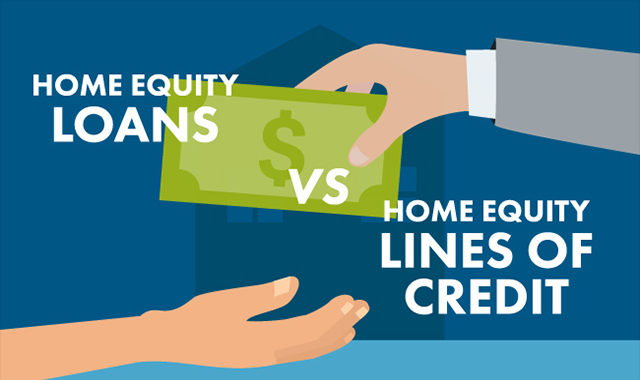Exploring Financial Freedom Through Equity Release Mortgages
Exploring the Various Types of Equity Release Mortgages Available Today
Equity Release mortgages present various options for home owners aged 55 and over. equity release mortgages. These financial products satisfy different needs and preferences, allowing people to accessibility funds from their residential property. From life time mortgages to common appreciation mortgages, each kind supplies distinctive advantages. Understanding these options is vital for making informed choices. What aspects should one think about when selecting the most ideal equity Release plan? The information that adhere to might clarify this important subject
Recognizing Equity Release Mortgages
Equity Release home mortgages supply home owners, normally those aged 55 and over, with a way to access the worth bound in their property without requiring to sell it. This financial option permits people to convert a portion of their home equity right into cash, which can be made use of for various purposes, such as home improvements, settling debts, or financing retirement.Equity Release can take various forms, yet it fundamentally entails borrowing versus the value of the home while maintaining possession. Home owners can pick to get a swelling sum or a collection of smaller settlements, depending on their monetary needs and preferences.Additionally, the quantity readily available for Release is affected by the home's value, the house owner's age, and specific loan provider standards. In general, understanding equity Release home loans is essential for homeowners to make enlightened choices regarding taking advantage of their home's equity while thinking about the long-lasting effects.
Lifetime Mortgages
Lifetime home loans represent among one of the most prominent types of equity Release. This monetary product enables home owners, generally aged 55 or older, to obtain against the value of their building while preserving ownership. The finance, which is safeguarded versus the home, builds up interest gradually however does not need regular monthly payments. Instead, the lending and accumulated interest are settled when the home owner passes away or relocates right into long-lasting care.Lifetime mortgages provide adaptability, as consumers can pick to receive a round figure or choose for a drawdown center, accessing funds as needed. Significantly, numerous plans featured a no-negative-equity assurance, making sure that debtors will never owe greater than the value of their home. This function offers satisfaction, permitting people to enjoy their retirement without the anxiety of depleting their estate. In general, lifetime mortgages offer as a sensible choice for those looking for financial backing in later life.
Home Reversion Plans

Drawdown Life Time Mortgages
While lots of house owners look for methods to access their wide range, drawdown life time home loans provide a flexible alternative that allows people to Release funds gradually. This type of equity Release home loan allows house owners to borrow against the value of their home while maintaining possession. Unlike traditional life time mortgages, drawdown strategies allow customers to access a part of their equity upfront and withdraw extra funds as required, approximately an established limit.This function can be specifically useful for those who want to handle their financial resources very carefully, as it lessens interest build-up by only charging passion on the amounts drawn. Furthermore, drawdown lifetime home loans usually include a "no unfavorable equity guarantee," making sure that debtors will never ever owe more than their home's worth. This alternative fits senior citizens who desire monetary security and adaptability, allowing them to fulfill unforeseen costs or preserve their way of life without having to sell their building.
Improved Life Time Mortgages
Improved Life time Mortgages supply distinct benefits for eligible house owners looking for to Release equity from their properties. Recognizing the qualification standards is crucial, as it establishes who can take advantage of these specialized loans. Nonetheless, it is likewise crucial to examine the possible drawbacks related to enhanced alternatives, guaranteeing a well-shaped viewpoint on their use.
Eligibility Standards Clarified
Recognizing the eligibility requirements for Enhanced Life time Mortgages is crucial for possible candidates looking for to access the equity in their homes. Commonly, applicants must be aged 55 or older, as this age demand is conventional in the equity Release market. Home owners should possess a residential property valued at a minimum threshold, which can vary by lending institution. Importantly, the property must be their key residence and in great condition. Lenders typically examine the home owner's wellness standing, as specific wellness problems may boost eligibility and benefits. Additionally, candidates ought to not have existing significant financial obligations secured versus the residential property. Meeting these standards allows people to explore Improved Life time Mortgages as a feasible choice for accessing funds locked up in their homes.
Benefits of Improved Home Mortgages
After clarifying the qualification criteria, it ends up being noticeable that Improved Life time Mortgages provide numerous substantial advantages for property owners looking to leverage their building equity. Mainly, they give access to a larger lending quantity contrasted to standard lifetime home mortgages, benefiting those with health and wellness problems or age-related variables that increase their life span risk. This enhanced borrowing capability enables homeowners to satisfy different monetary requirements, such as home renovations or retirement expenses. Additionally, these mortgages usually feature flexible repayment options, enabling borrowers to handle their funds much more properly. The no-negative-equity warranty additionally guarantees that property owners will never owe more than their residential or commercial property's worth, giving assurance. Overall, Enhanced Lifetime Home mortgages offer an engaging option for eligible property owners looking for economic options.
Prospective Downsides Taken Into Consideration
While Improved Lifetime Mortgages offer numerous benefits, possible downsides necessitate cautious factor to consider. One considerable issue is the effect on inheritance; the equity released minimizes the worth of the estate delegated recipients. Additionally, these home mortgages can accumulate significant rate of interest in time, leading to a considerable financial obligation that may go beyond the initial additional reading finance amount. There might additionally be constraints on property alterations or rental, limiting house owners' adaptability. Moreover, boosted products usually need details health problems, indicating not all home owners will certainly qualify. Managing the charges and charges associated with these home mortgages can be complicated, possibly leading to unanticipated prices. Because of this, people must completely assess their situation and speak with economic experts before continuing.
Shared Appreciation Mortgages
Shared Recognition Mortgages represent a distinct financial arrangement that enables home owners to gain access to equity while sharing future residential property worth enhances with the lender. This technique provides potential advantages such as lowered monthly settlements, but it additionally features drawbacks that should be thoroughly thought about. Recognizing the eligibility needs is vital for those curious about this choice.
Idea Summary
Equity Release mortgages, particularly in the form of shared appreciation home mortgages, provide homeowners an unique monetary service that enables them to accessibility funds by leveraging the value of their residential property. In this setup, a loan provider offers a car loan to the home owner, which is generally paid back via a share of the residential property's future appreciation in value. This suggests that when the house owner sells the residential property or passes away, the lending institution obtains a portion of the boosted value, instead of just the initial funding amount. Shared admiration home loans can be appealing for those looking to supplement their income or financing substantial costs while keeping ownership of their home. Nonetheless, the economic ramifications of common recognition must be meticulously considered by possible customers.
Advantages and Disadvantages
Common admiration home mortgages can provide substantial monetary advantages, they additionally come with notable drawbacks that potential customers need to take into consideration. These home mortgages permit home owners to access equity in their residential properties while sharing a section of any type of future gratitude with the loan provider. This setup can be beneficial throughout times of climbing residential property values, providing considerable funds without regular monthly settlements. Nevertheless, the major disadvantage is the prospective loss of equity; house owners might wind up with substantially decreased inheritance for heirs. In addition, the complexity of the terms can result in misunderstandings concerning repayment commitments and the percentage of appreciation owed. For that reason, it is important for consumers to weigh these aspects very carefully before committing to a common appreciation mortgage.
Eligibility Requirements
What requirements must homeowners satisfy to get approved for a shared recognition mortgage? Mainly, prospects must be at the very least 55 years old, ensuring they are within the target demographic for equity Release items. Additionally, the residential or commercial property must be their primary home and typically valued above a specified minimum limit, commonly around ? 100,000. Lenders also evaluate the house owner's economic circumstances, including revenue and arrearages, to ascertain they can manage the mortgage properly. Significantly, the home has to remain in excellent problem and without significant legal encumbrances. Property owners must additionally have a clear understanding of the terms, consisting of just how admiration will be shown to the lending institution upon sale or transfer of the residential property, as this impacts total returns.
Selecting the Right Equity Release Option

Regularly Asked Questions
What Age Do I Required to Be for Equity Release?
The age need for equity Release normally begins at 55 for the majority of strategies. However, some companies may provide alternatives for those aged 60 and above, mirroring varying terms based upon individual conditions and lender plans.
Will Equity Release Affect My Inheritance?
Equity Release can influence inheritance, her latest blog as the amount borrowed plus passion decreases the estate's worth. Heirs may get much less than expected, depending on the residential property's appreciation and the overall financial debt at the time of passing.
Can I Move House With Equity Release?
The inquiry of relocating home with equity Release arises frequently. Normally, people can move their equity Release strategy to a new home, however details terms and conditions may apply, requiring assessment with the lending institution for advice.
Exist Fees Linked With Equity Release Mortgages?
Costs connected with equity Release mortgages can include plan charges, appraisal fees, and legal costs. In addition, there may be very early learn the facts here now settlement costs, which can affect the overall cost and monetary effects for the consumer.
How Does Equity Release Effect My Tax Circumstance?
Equity Release can influence one's tax obligation circumstance by potentially boosting gross income, as launched funds are taken into consideration funding. Nevertheless, it usually does not sustain instant tax liabilities, making it important to speak with a financial consultant for personalized advice.
Verdict
In summary, the variety of equity Release mortgages readily available today uses homeowners aged 55 and over numerous pathways to access their residential or commercial property's worth - equity release mortgages. Whether going with a lifetime home mortgage, home reversion plan, or various other alternatives, each alternative presents unique advantages customized to individual financial requirements. Mindful factor to consider and consultation with an economic expert are important to assure the chosen equity Release option lines up with financial situations and personal objectives, ultimately assisting in notified decision-making for a protected economic future. Equity Release home loans existing numerous alternatives for homeowners aged 55 and over. Equity Release home mortgages give homeowners, generally those aged 55 and over, with a method to access the worth connected up in their residential property without requiring to market it. Boosted Life time Home loans use distinctive advantages for qualified homeowners seeking to Release equity from their properties. Equity Release home mortgages, particularly in the type of common recognition mortgages, provide home owners an one-of-a-kind financial solution that permits them to access funds by leveraging the worth of their building. In summary, the selection of equity Release home mortgages available today supplies homeowners aged 55 and over multiple pathways to access their residential or commercial property's worth